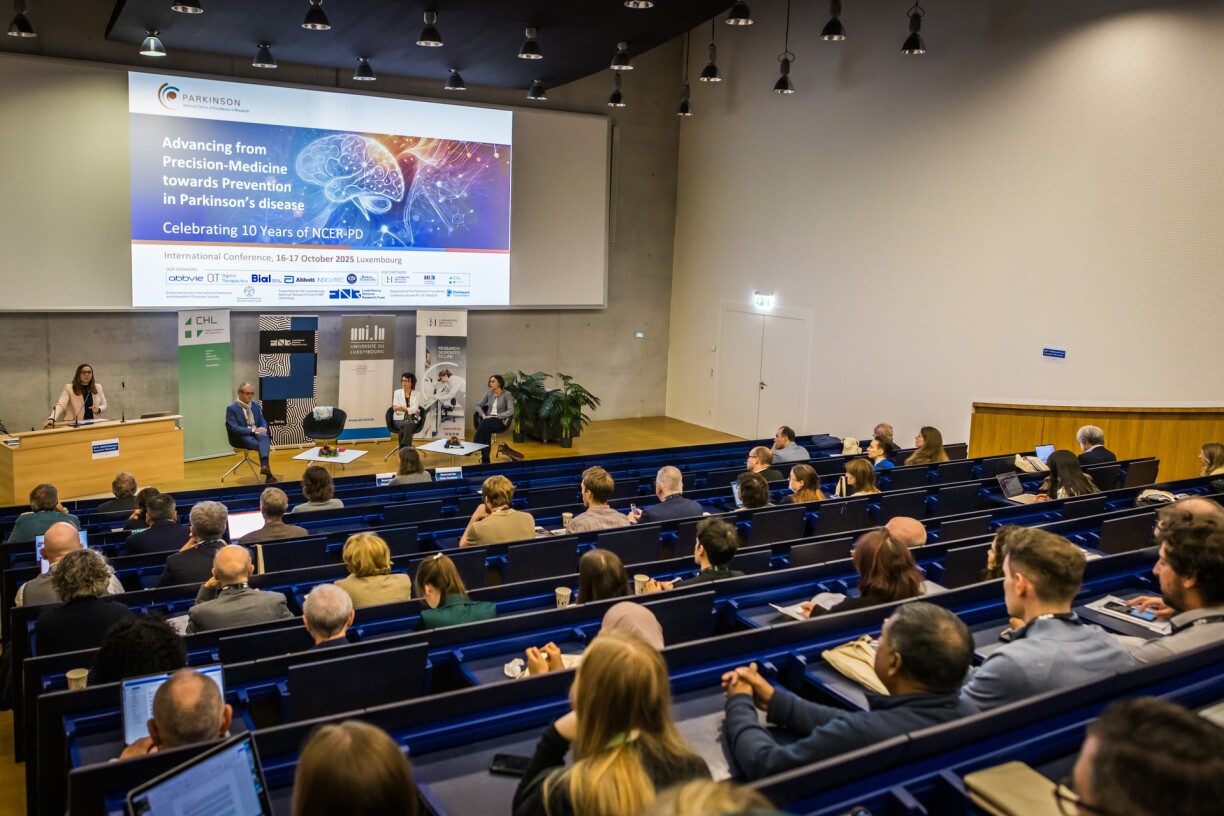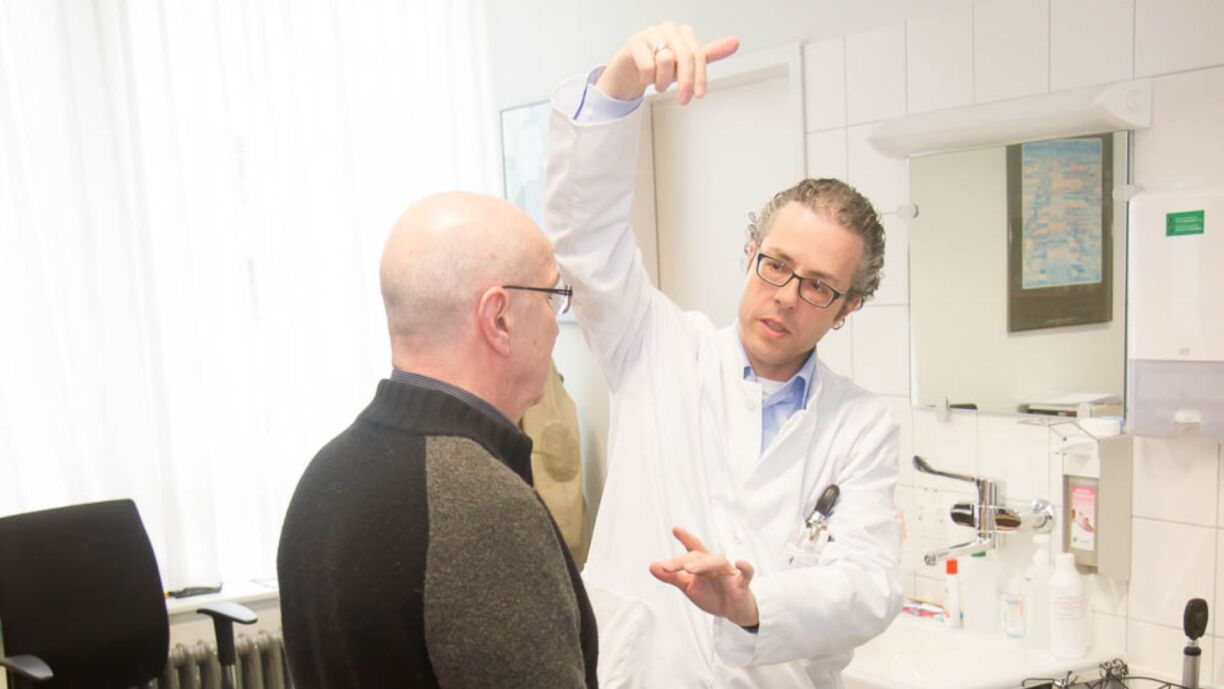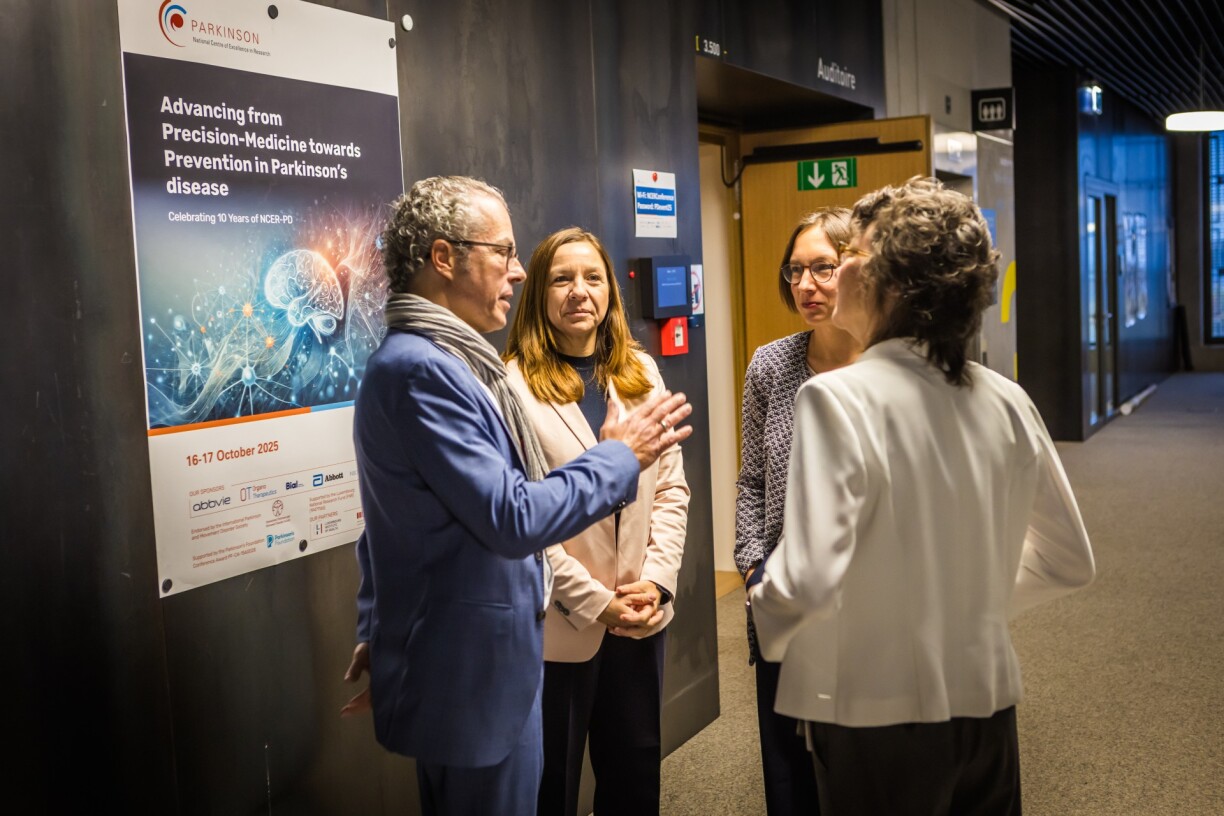
Parkinson’s is a disease that most of us have heard of but few truly understand, and for good reason: the disease remains one shrouded in the unknown. Affecting more than 10 million people worldwide, we don’t yet know why some are affected or, when a diagnosis is finally made, how fast or slow it may progress.
Gaining increased awareness, thanks in large part to the Michael J. Fox foundation, research continues to deepen and progress continues to be made, all with the goal of exploring ways to better prevent, diagnose, and treat this disease. At the heart of this ongoing research is a Luxembourgish initiative: the National Centre for Excellence in Research on Parkinson’s Disease (NCER-PD).
Coming together in 2015, NCER-PD has become one of Europe’s most comprehensive Parkinson’s cohorts and operates in partnership with many of Luxembourg’s leading medical, academic, and financial institutions. These include the Luxembourg National Research Fund, the University of Luxembourg, the Institute of Health, the Luxembourg Centre for Systems Biomedicine, the Integrated BioBank of Luxembourg, the Centre Hospitalier de Luxembourg, and the Laboratoire National de Santé.
“They joined forces in order to bring forward research on Parkinson’s disease, at the core”, Professor Rejko Krüger, coordinator of NCER-PD and a prominent neurologist recognised for his decades of expertise in neurodegenerative diseases explained. “From the very beginning, there was a concept to build something new.”
Ten years in, NCER-PD held a two-day event at the University of Luxembourg this week, where professors and experts from leading Parkinson’s research institutes from Cambridge, Innsbruck, New Haven, Tokyo, and more gathered.
While research continues, much has already been achieved over the past decade. Sitting down with Prof. Krüger, RTL Today learnt more about what the institute has managed to achieve.

Two key areas of focus for the treatment of Parkinson’s Disease are diagnosis and prevention.
There is currently no definitive single test for diagnosing Parkinson’s – symptoms manifest across a spectrum and while tremors and impaired balance are among the more recognisable symptoms, they do not occur in all patients. In the group’s study in Luxembourg, it takes an average of three years to make the right diagnosis.
Using Alzheimer’s, another progressive neurodegenerative disease, as an example, Prof. Krüger explains how developments for quicker diagnosis are on the horizon.
“For Alzheimer’s, a spinal tap [is done] and from the spinal fluid, you measure two proteins”, he said. “If you see them misaligned, then you can already say there’s a new degenerative process that leads to Alzheimer’s disease.”
“I expect a similar kind of biomarker-based diagnostics”, Prof. Krüger said. “That does not necessarily mean that everybody [in whom] you measure it gets Parkinson’s in the next year, but you can at least say, here’s a person at risk.”
And while these tests have typically been done with spinal fluid, a far simpler option is on the horizon.
“Something that we are very proud of is that we contributed with our Japanese colleagues [as part of a] worldwide collaboration to identify a biomarker that could in the future help to do the diagnosis.”
“Proteins in the blood are the same protein that aggregates normally in the brain in Parkinson’s disease patients. So we won’t have to access the brain, we can read these proteins from the blood.”
Currently fine-tuning this new concept into something that could enter diagnostics in two or three years, Prof Krüger says this blood test could then function as an indication for future onset of Parkinson’s, or to confirm the disease following existing symptoms.

Another development of the institute’s research is finding the means to slow down the progression of Parkinson’s in patients. An ongoing study on healthy brain ageing now runs in parallel with Austria, Spain, and Germany: the study follows 29,000 individuals and learns about what the initial symptoms of Parkinson’s are.
In 2018, ParkinsonNet Luxembourg was launched, following a template set by the Netherlands. With the aim of offering the best care available today, volunteers in Luxembourg provide clinical data and biological samples. Many do this with an understanding that the benefits of these studies may be beneficial only to future generations. But Prof Krüger is eager for his volunteers to benefit from the trials themselves.
“These could be the people that qualify next for a clinical trial when there’s a drug that can really slow down disease progression on the horizon, so that’s something very important in the upcoming years”, he said.
Real solutions have been put to use thanks to trials and new methods, too.
“People in Luxembourg can benefit from innovation. For instance, we had one trial where a pump delivering the medication that people with Parkinson’s need was attached to the teeth and the medication was continuously delivered”, Prof. Krüger said. “This was a big advantage for the patients because they didn’t have to swallow tablets anymore. It was simply during the normal swallowing that they took up the medication in a way. That was an innovative concept that we could provide access to.”
Very soon, another new study is being launched in Luxembourg, where people with the GBA1 gene linked to Parkinson’s will be invited for a treatment. “In that trial we want to stop cognitive problems because people with GBA1 mutations have a higher risk of developing dementia”, Prof. Krüger said. “And with our trial, we want to prove that we can prevent dementia.”
With Parkinson’s research centres having long been established elsewhere, such as the Oxford Parkinson’s Disease Centre and the Center of Neurology in Tübingen, Luxembourg had substantial bodies to use as a benchmark.
“Something that is very important in research is finding people who are collaborative, and that already enabled us from the start”, Prof. Krüger said. What Luxembourg brings to the table is what it arguably does best: multilingualism and stability.
“Maybe because we are used to speaking different languages in Luxembourg, and in a way that spirit of listening and trying to find the common denominator – that for me has been a very important feature of success”, said Prof. Krüger, who is originally from Germany.
Prof. Krüger sees more opportunities still for Luxembourg to take the lead.
“It’s a small country, it’s an open-minded country, it’s not a threat to anybody. Even now entering the field on the international stage, we were immediately accepted, and could enter collaborations and could also reach out”, he stated.
Beyond linguistic and diplomatic advantages, Luxembourg’s computational infrastructure databases connect teams across the region, too.
“The specificity of Luxembourg is that we are already knowledgeable in computational modelling of database infrastructure. In Germany, Austria, Spain, and in Luxembourg, even colleagues from other countries save their data online, and that goes to Luxembourg. We are hosting here because we have that special IT infrastructure, computational understanding.”
While much has been achieved, there are further ways to go yet. More research is currently being done into understanding the difference between male and female subjects, as well as different ethnicities.
“Parkinson’s in Africa looks different than Parkinson’s in Europe,” said Prof. Krüger. “And we have in terms of genetics, a big bias, because essentially 90% of all the data comes from white Western populations. There’s a big effort now – we are collaborating, for instance, with Egypt, with South Africa, and we have the Luxembourg-German-Indian Initiative to learn about the differences.”
“Is it genetic? Is it the environment? These are the next questions”, said Prof. Krüger.
For the professor, collaboration is the way forward for future development and breakthroughs in Parkinson’s research. And an essential part of this collaboration is putting the patient at the centre of it all.
“We empower patients to actively take part in research, so we have patient advisory boards”, Prof. Krüger said. “When we have a new study they can tell us what they think about it, what they need, or how we can improve.”